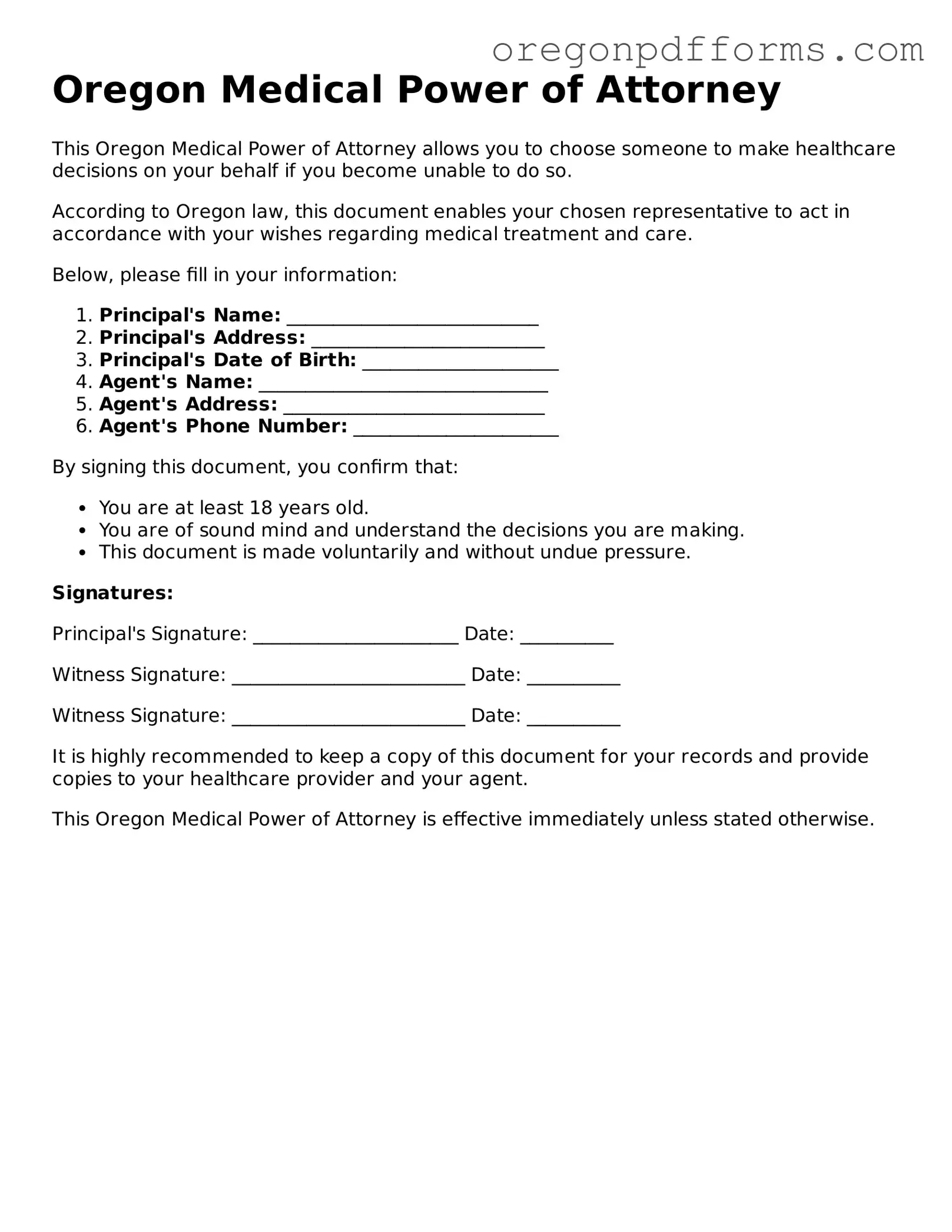What is a Medical Power of Attorney in Oregon?
A Medical Power of Attorney (MPOA) in Oregon is a legal document that allows you to appoint someone to make healthcare decisions on your behalf if you become unable to do so. This person, known as your agent or proxy, will have the authority to make decisions regarding your medical treatment, including surgeries, medications, and end-of-life care, based on your wishes.
How do I create a Medical Power of Attorney in Oregon?
To create a Medical Power of Attorney in Oregon, follow these steps:
-
Choose a trusted person to act as your agent.
-
Complete the Oregon MPOA form, which can be obtained online or through legal resources.
-
Sign the document in the presence of a notary public or two witnesses, as required by Oregon law.
-
Provide copies of the signed document to your agent and your healthcare providers.
Can I change or revoke my Medical Power of Attorney?
Yes, you have the right to change or revoke your Medical Power of Attorney at any time, as long as you are mentally competent. To do so, you should create a new MPOA that explicitly states your intentions or provide a written notice to your agent and healthcare providers indicating that the previous MPOA is no longer valid.
What if I do not have a Medical Power of Attorney?
If you do not have a Medical Power of Attorney and become unable to make decisions for yourself, your family members or healthcare providers may need to seek a court-appointed guardian. This process can be lengthy and may not reflect your personal wishes. Having an MPOA ensures that your healthcare decisions align with your values and preferences.
What should I consider when choosing an agent?
When selecting an agent for your Medical Power of Attorney, consider the following:
-
Your agent should be someone you trust completely.
-
Choose someone who understands your healthcare wishes and values.
-
Consider their ability to make difficult decisions under pressure.
-
It may be beneficial to select an alternate agent in case your primary agent is unavailable.
Are there any limitations to the authority of my agent?
Yes, your agent's authority can be limited by the instructions you provide in the MPOA document. You can specify which medical treatments they can or cannot authorize. Additionally, your agent must always act in your best interest and according to your wishes. If your wishes are not clear, the agent should consult with your healthcare providers and family members.
Is a Medical Power of Attorney the same as an Advance Directive?
No, a Medical Power of Attorney and an Advance Directive are not the same, although they can work together. An Advance Directive outlines your preferences for medical treatment in specific situations, while a Medical Power of Attorney designates someone to make decisions on your behalf. It is advisable to have both documents to ensure your healthcare wishes are honored.

